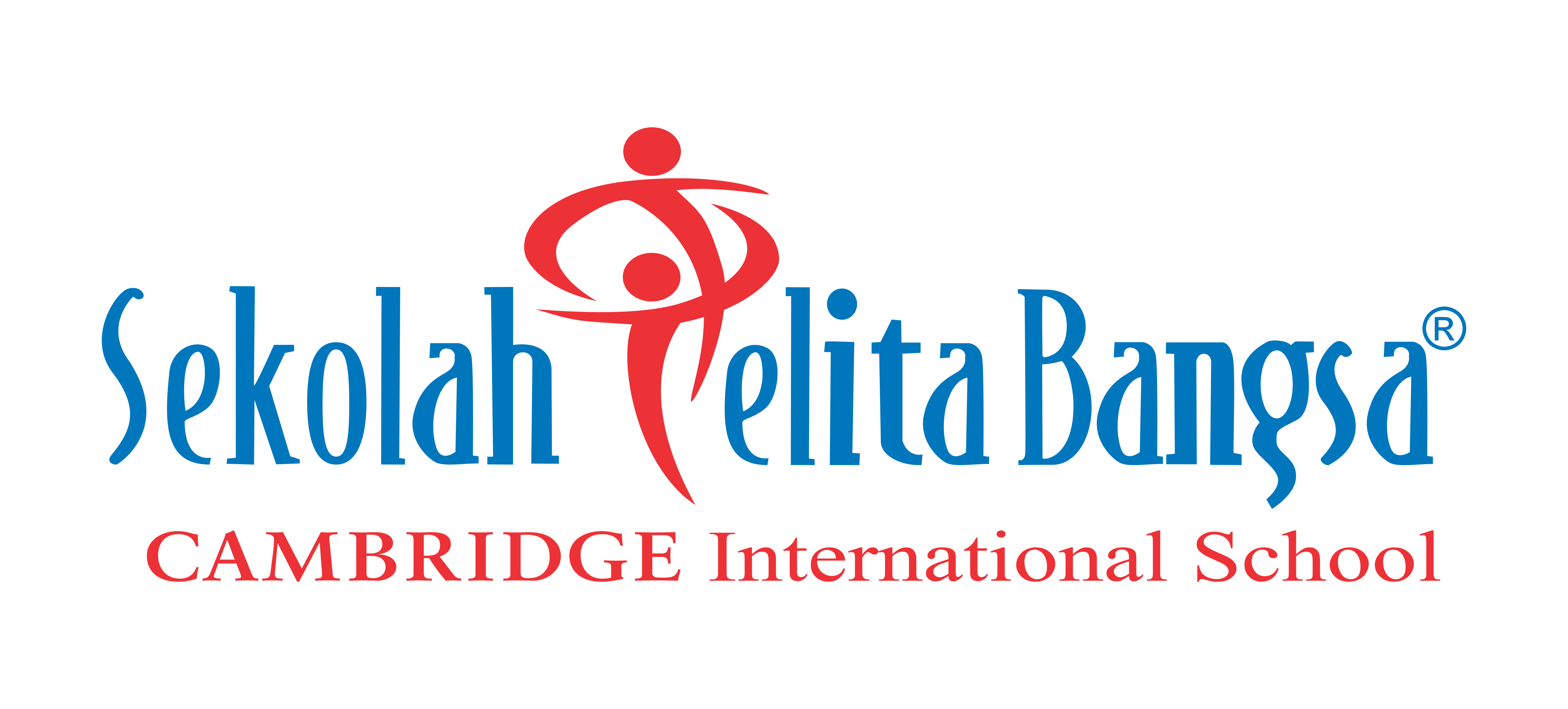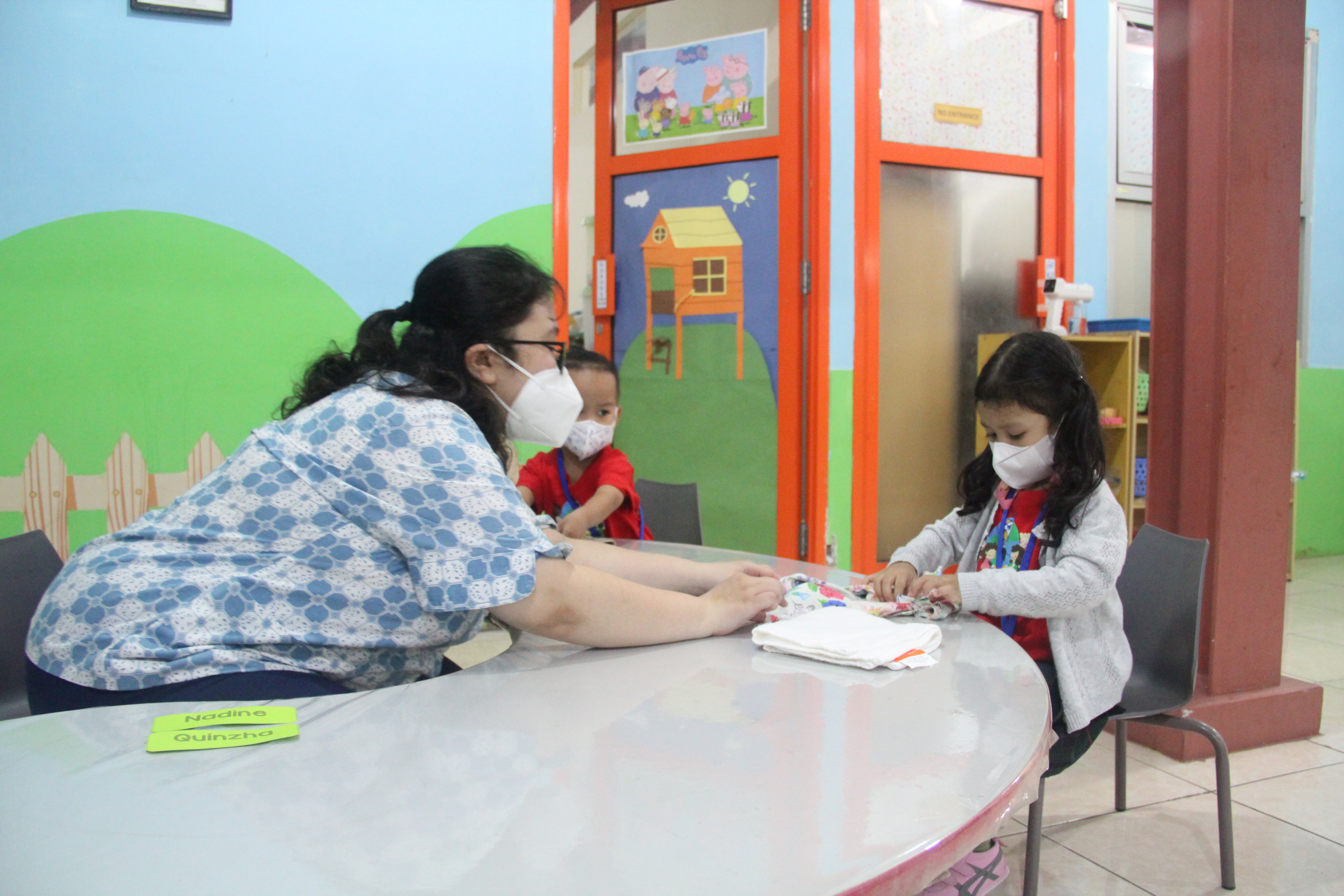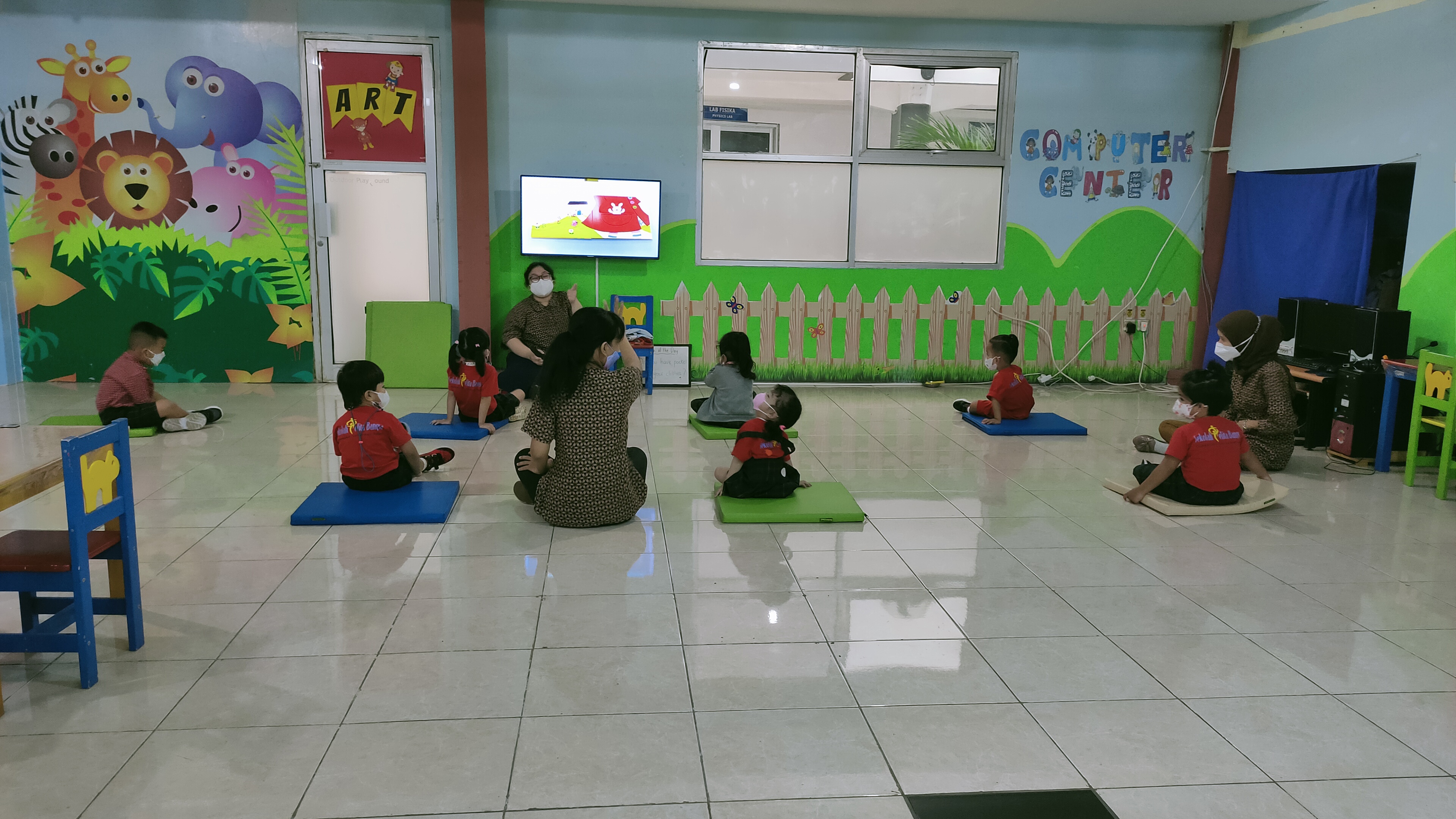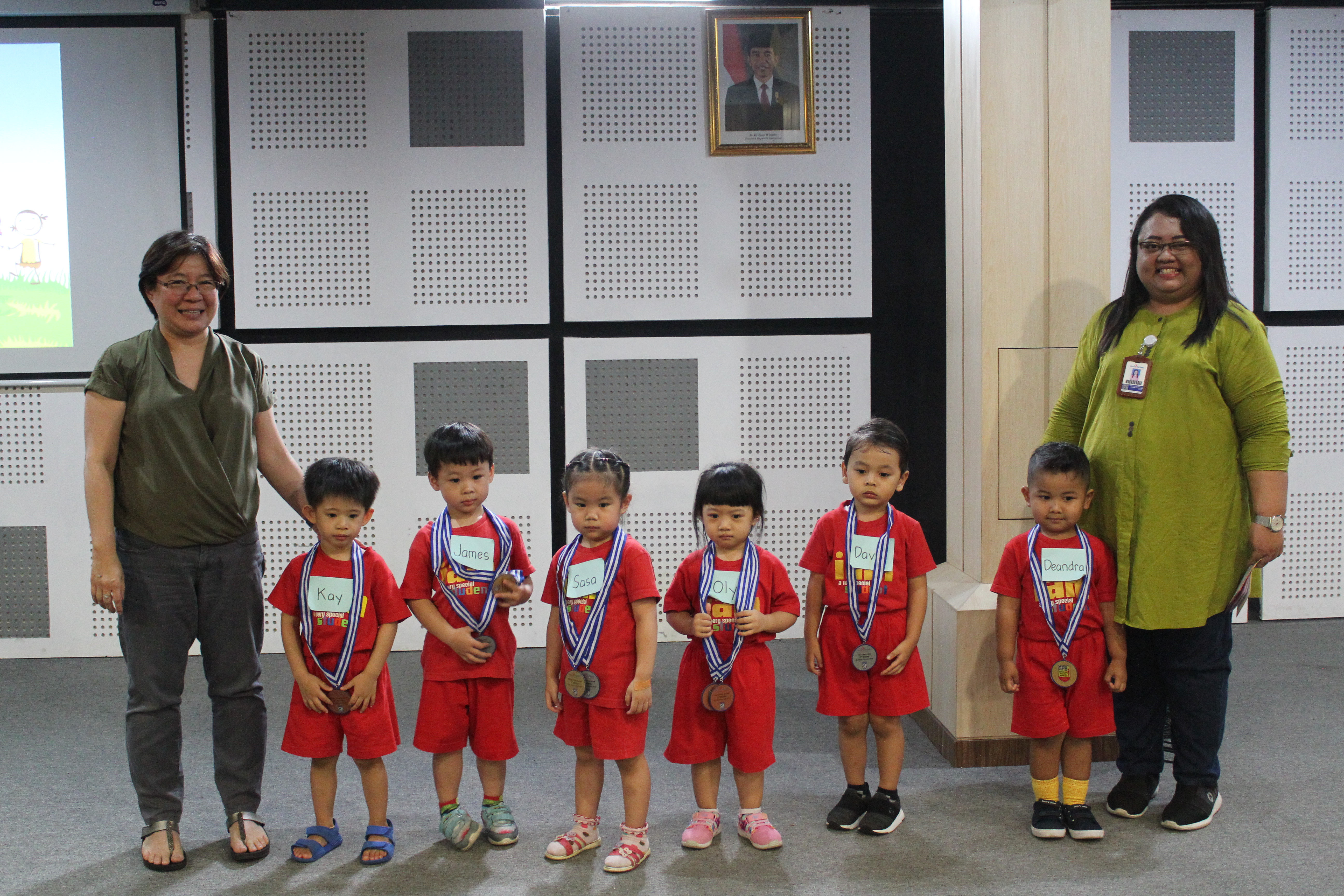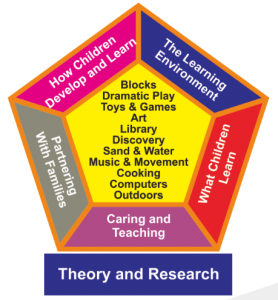OVERVIEW
Age group: 2 – 4 years old
Young children learn mainly through play and interactive activities. They like to discover new things, explore their limits and develop skills in problem solving.
Children two and three years old are usually too young for formal lessons. A less structured approached, including one-on-one instruction, small group lessons and learning through creative activities, let the children learn at his or her own pace.
CURRICULUM
Our Programme incorporates The Creative Curriculum System for Preschool
That features research-based content and daily resources. The Creative Curriculum System for Preschool is based on 38 objectives for development and learning.
Using exploration and discovery as a way of learning, The Creative Curriculum System for Preschool enables children to develop confidence, creativity, and lifelong critical thinking skills. Instructions are individualized to meet the needs of every type of learner and address all the important areas of learning, from social-emotional and math to technology and the arts, and incorporate them throughout every part of every day.
